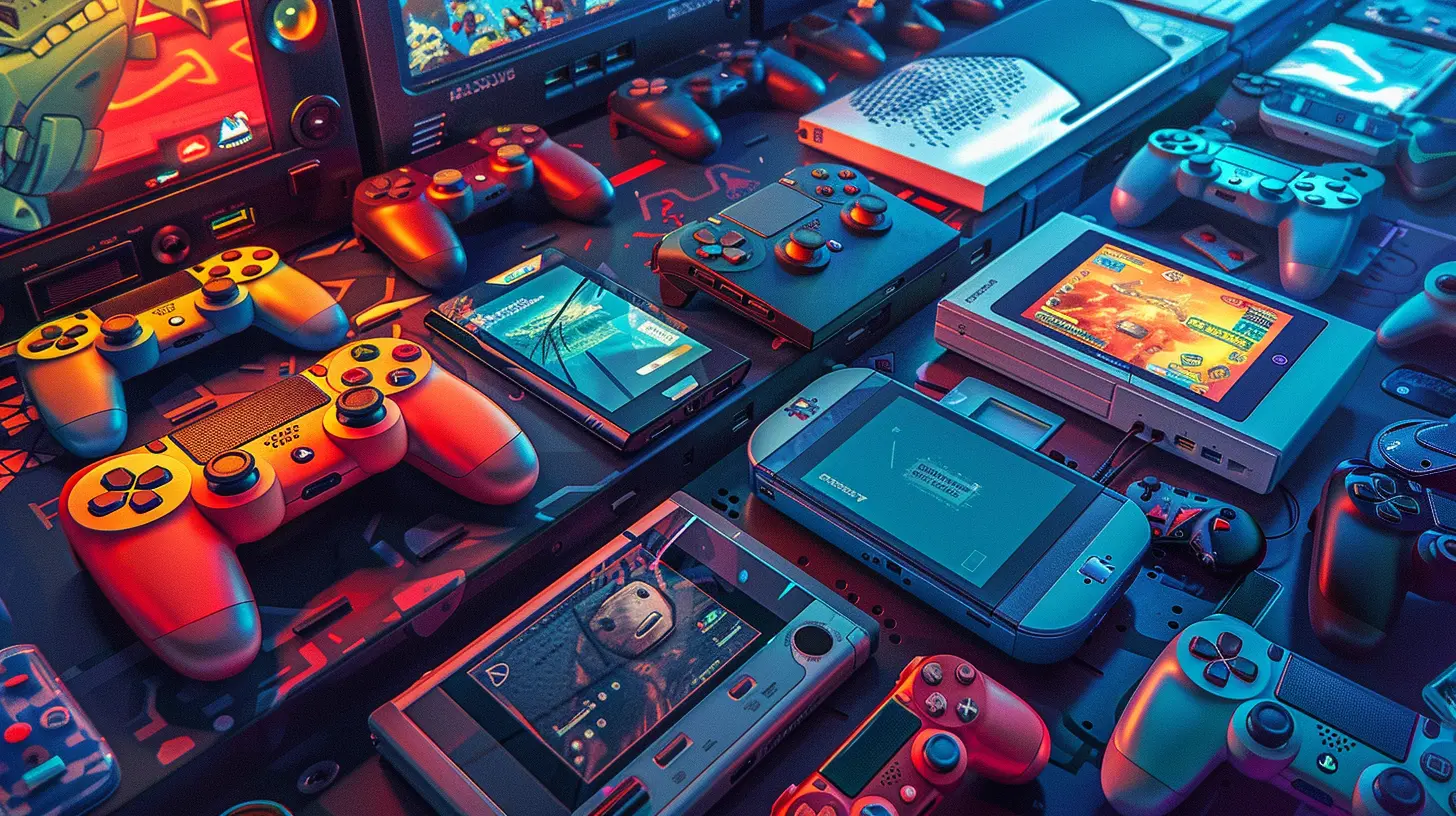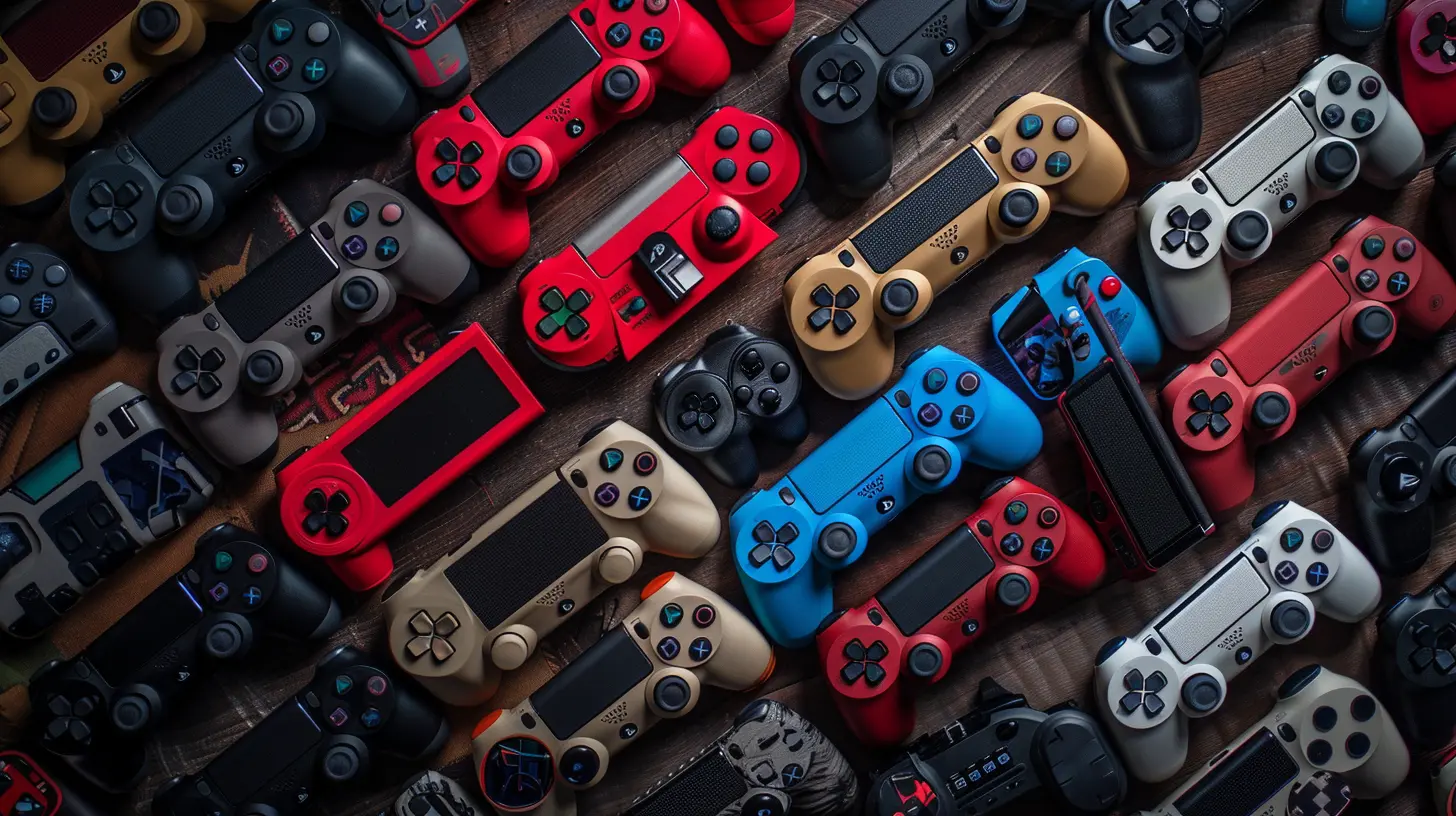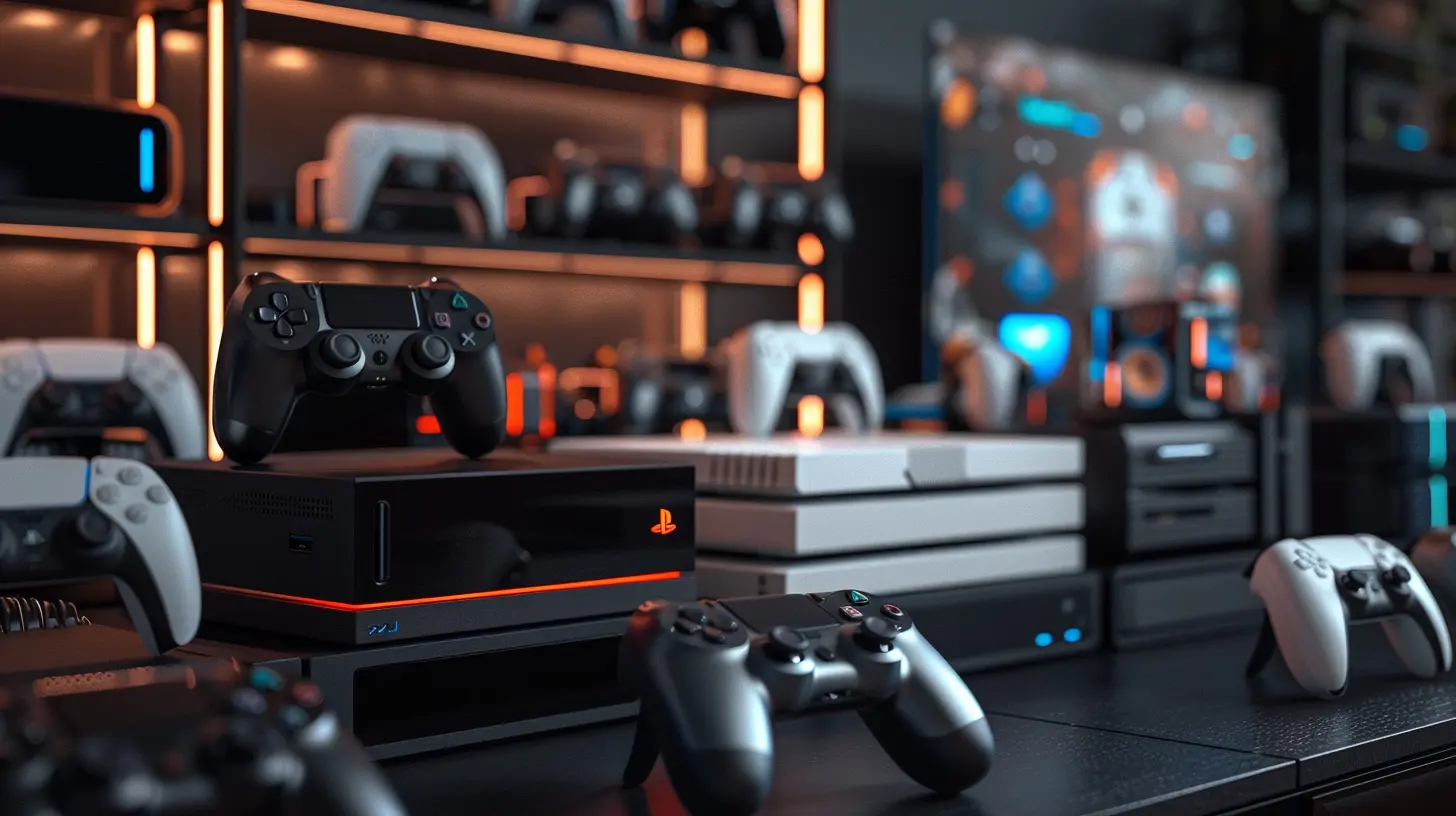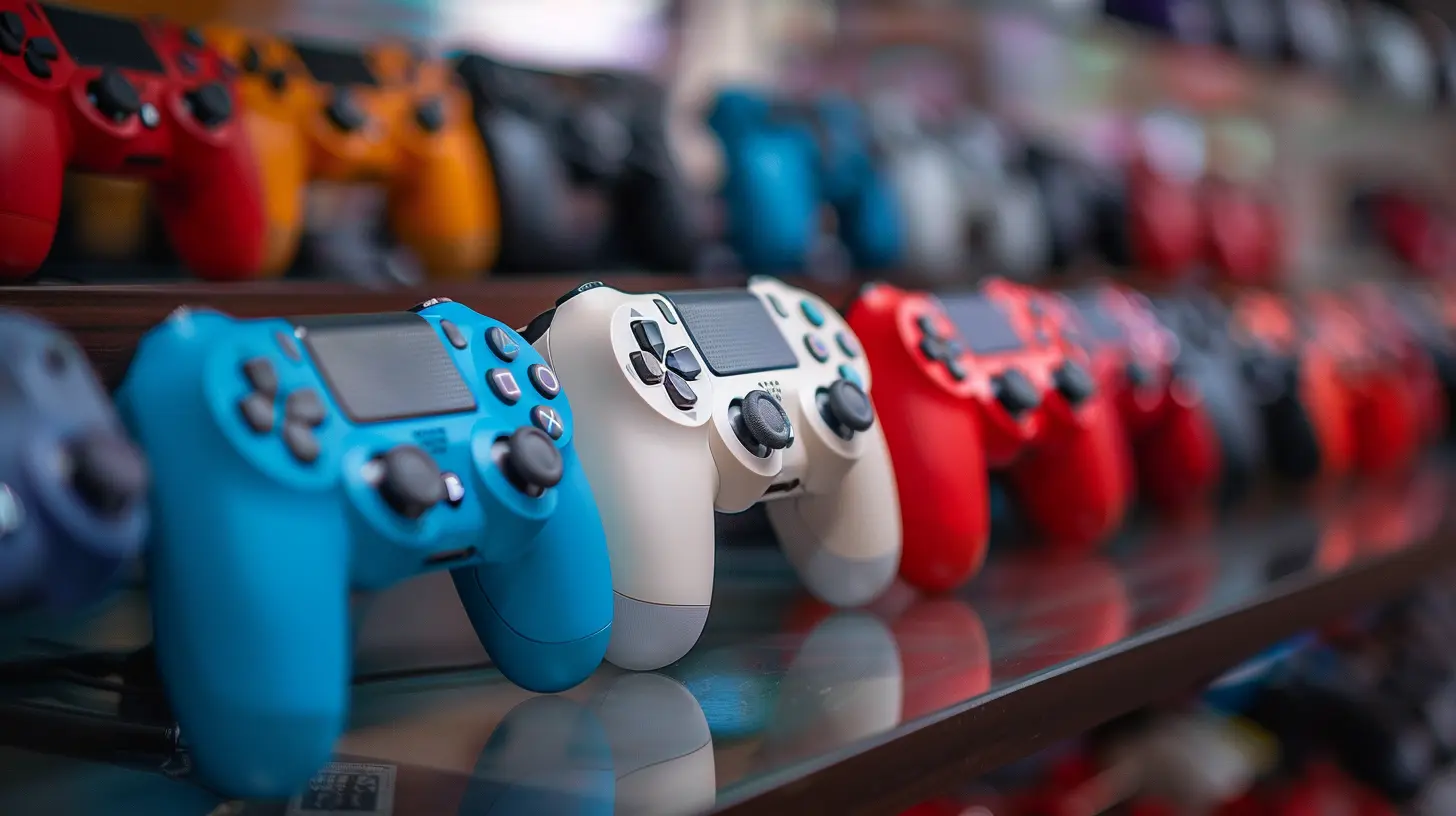The Rise of All-Digital Game Consoles
19 November 2025
Let’s face it—gaming isn’t what it used to be. Remember blowing into your cartridges, swapping discs with friends, or lining up at midnight for the latest physical release? Those days are quickly fading into the rearview mirror. We’re now living in an age where all-digital game consoles are not just a trendy option—they’re becoming the new norm.
If you've noticed more consoles ditching the disc drive, you're not alone. The gaming world is going through a pretty massive transformation, and all-digital consoles are leading the charge. So, what’s driving this digital revolution? Is it a good thing? And most importantly—what does it mean for us gamers? Let's dive right in.
What Are All-Digital Game Consoles?
Before we get too deep, let’s break down what we’re talking about. An all-digital game console is exactly what it sounds like: a console that doesn’t use physical game media like discs or cartridges. No optical drive. No disc slots. Just digital downloads, cloud games, and streaming.Think Xbox Series S, PlayStation 5 Digital Edition, or even handheld hybrids like the all-digital Logitech G Cloud. These devices rely solely on internet connectivity and storage space to bring your favorite titles to your screen.
It’s like switching from DVDs to Netflix—once you realize how convenient it is, it's hard to go back.
Why The Shift to Digital?
There’s no single reason this change is happening. It's more like a perfect storm of factors pushing us toward an all-digital future.1. Convenience Is King
Let’s be real—who wants to get off the couch, find a disc case, open it up, swap out the disc, and wait for it to load? All-digital consoles remove all that friction. Just scroll, click, and play. Anytime. Anywhere.It’s gaming on demand, and once you’ve tasted that kind of ease, going back feels like using a flip phone in 2024.
2. Cloud Gaming & Game Streaming Are on the Rise
Services like Xbox Game Pass Ultimate (which includes xCloud), NVIDIA GeForce NOW, and PlayStation Plus Premium offer cloud gaming that lets you play high-end titles without the hardware—just a good internet connection.All-digital consoles are tailored to handle this sort of tech, making them the obvious choice in this new streaming-first environment.
3. Lower Cost = Wider Reach
Digital-only versions of consoles often come with a lower price tag. The Xbox Series S, for example, undercuts its disc-based sibling by a significant margin. That price drop makes gaming more accessible to folks who might not have splurged otherwise.And let’s not overlook sales and digital bundles—online stores run frequent deals, giving you more bang for your buck.
4. Publishers Save Big
From a publisher’s standpoint, digital games are a dream. No packaging, no shipping, no shelf space. That means better margins and more control over pricing. Plus, there’s no used game market to cut into their profits—once you buy digital, it’s yours forever. No trades. No resales.It sounds a bit corporate, sure, but it’s a big reason why this shift is happening fast.
The Impact on Physical Media
So with all the buzz around digital consoles, where does that leave physical discs and retailers?1. Retailers Are Hurting
Big-box stores like GameStop have already felt the sting. As gamers stop buying physical games, there's less foot traffic, fewer upsells, and ultimately, reduced revenue streams.2. Collectors Are Concerned
Some players love the feel of a game case in their hands. The artwork, the manuals (remember those?), the nostalgia of lining your shelf like a trophy cabinet—that’s not easily replaced by a library of digital tiles on your home screen.3. Preservation Becomes a Problem
One point often overlooked is game preservation. Physical media acts like a time capsule—you can pick up an old title decades later and still play it. Digital games, on the other hand, can disappear. Studios go under, licensing issues arise, and suddenly, you can’t re-download that classic. Poof, it’s gone.
The Major Players in the Digital Arena
Let’s spotlight some of the key all-digital consoles and how they’re shaping the gaming landscape.🟩 Xbox Series S
Microsoft shot out of the gate with the Xbox Series S, a sleek, small, and seriously powerful digital console. It supports next-gen games, loads everything lightning fast thanks to its SSD, and pairs beautifully with Xbox Game Pass.The Series S is aimed at casual gamers, digital-first users, and anyone looking for a budget-friendly gateway into next-gen gaming.
🔵 PlayStation 5 Digital Edition
Sony’s PS5 Digital Edition is exactly the same as its disc-based twin under the hood—you get the same power, graphics capability, and speedy load times. The only difference? No disc drive.It’s a bold move, considering how many PS4 titles came on discs, but it's a clear commitment to digital.
🔶 Nintendo’s Unique Path
While Nintendo hasn’t released a fully digital-only console (yet), digital sales are booming on the eShop. The Switch Lite pushes things in that direction by being a no-frills, handheld-only device, and many players are now downloading more than they buy physically.Benefits of All-Digital Game Consoles
Let’s stop and actually count the perks for a second, shall we?✅ No More Lost Discs
Probably the biggest practical perk—no more rummaging under the couch cushions for a missing game. Everything is stored digitally, safe and sound.✅ Instant Delivery
You don’t have to wait in line, wait for shipping, or even step out of the house. Games download directly to your console and install themselves in minutes.✅ Eco-Friendly Vibes
No plastics, no packaging, no transportation costs—going digital has serious environmental upsides too.✅ More Space, Less Clutter
Say goodbye to overflowing entertainment centers. With digital libraries, your game collection lives inside your console or in the cloud—not on your bookshelf.Drawbacks You Shouldn't Ignore
But hey, it’s not all sunshine and pixels. There are a few downsides worth mentioning.❌ No Physical Backup
What happens if your account gets hacked? Or if the digital store vanishes? With digital-only libraries, you’re putting a lot of faith in the cloud gods.❌ Internet Dependency
If your internet goes down, so does your access. Many games now require online verification—even single-player ones—which can be frustrating.❌ Storage Woes
Games today aren’t small. With most AAA titles clocking in at 50GB or more, your console’s internal storage fills up fast. And external storage? That’s an extra cost.❌ No Reselling or Lending
Remember trading games with friends? That’s essentially impossible with digital titles. Once you buy it, it’s tied to your account. Forever.The Future of Gaming: Are Discs Really Dying?
That's the million-dollar question, isn’t it?Game publishers are increasingly prioritizing digital. In fact, several major titles are launching exclusively digital. And as internet access becomes more stable globally, cloud gaming continues to evolve, and console hardware advances—the need for physical media continues to dwindle.
But... physical games won’t disappear overnight. There’s still a major market for physical collectors, and retail partnerships still matter—at least for now.
What we’re likely heading toward is a hybrid period—where both digital and physical coexist, but digital clearly takes center stage.
How to Decide Between Digital and Physical Consoles
Choosing between a digital-only console and a traditional one really comes down to how you play.Ask yourself:
- Do I trade or resell my games?
- Is my internet connection fast and reliable?
- Do I prefer convenience or collecting?
- Am I okay with not owning a physical copy?
If your answers skew towards convenience, speed, and minimalist living—the all-digital path is pretty much written in the stars for you.
Final Thoughts: Embracing the Digital Future
The rise of all-digital game consoles isn’t just a passing phase—it’s the direction modern gaming is headed. For many, it's a welcome change. The benefits—speed, convenience, accessibility—are hard to beat. And for developers and publishers, there’s real business sense behind it.Yes, there will always be purists who yearn for the nostalgic charm of a physical game. And that’s okay. But for the everyday gamer who just wants to dive into the action without fuss? Digital is already winning the race.
So whether you’re team digital or still clutching your game discs tightly, there’s no denying that gaming’s future is moving online. And honestly? It’s kinda exciting.
all images in this post were generated using AI tools
Category:
Game ConsolesAuthor:

Kaitlyn Pace
Discussion
rate this article
1 comments
Harvey Wolfe
Exciting times for gamers! All-digital consoles really streamline the experience—no more discs to manage. Love the convenience!
November 23, 2025 at 5:08 AM

Kaitlyn Pace
Absolutely! All-digital consoles simplify gaming and enhance convenience, making it easier for players to access their favorite titles anytime, anywhere.


